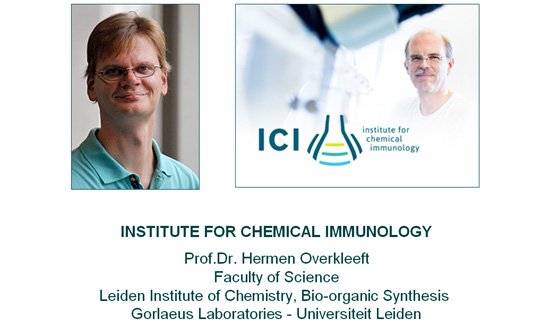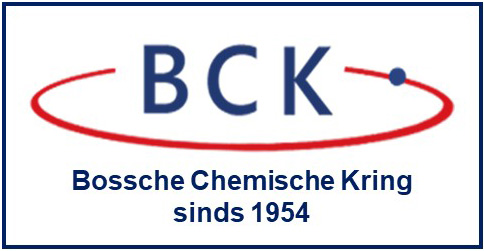| Datum |
Dinsdag 10 februari 2015 |
||||||
| Locatie | Rode Kruis Gebouw, Oude Dieze 12, 's-Hertogenbosch | ||||||
| Aanvang |
|

Samenvatting
A consortium led by Prof J.J.C. Neefjes (NKI) involving with Profs C.G. Figdor (Radboudumc), P. Gros (UU), A.J.R. Heck (UU), H.S. Overkleeft (UL), and T.N.M. Schumacher (NKI) have been awarded 27,6 M Euro to initiate the Institute for Chemical Immunology (ICI).
The award is made possible by the NWO Gravitation Programme. The aim of the Gravitation Programme is to boost consortia with an excellent scientific research programme. The research programme has the potential to make a substantial scientific contribution at the highest international level. The awardees belong to the absolute world top in their research field. The grant is for a period of ten years.
Researchers in the here Institute for Chemical Immunology (ICI) consortium will join forces to develop novel classes of immune interventions, by combining their expertise and tools. Within ICI, experts in chemical biology, structural biology, proteomics and drug design will assemble with experts in immunology to define a novel field of chemistry-driven immune intervention. Within ICI, this unique integration of chemistry and immunology will train a novel generation of multidisciplinary scientists, able to create new solutions for human healthcare interventions. The applicants of this program are highly visible, internationally leading scientists in their research fields, with a proven track record in interdisciplinary high profile research, as also illustrated by existing collaborations. Importantly, ICI includes clinically oriented groups that are essential to enable the clinical translation of the newly developed chemistry-driven immuno-therapeutics. Such new modalities are of great need for the many immune-associated diseases for which no efficient treatment is at hand. ICI will have a leading position in international academic and translational immunology, which will create strong output in societal and economic terms.
The novel chemistry-based therapeutic strategies and diagnostic tools that ICI aims to develop can eventually be applied to a large number of human health conditions. To create desirable focus and critical mass within this program, ICI will initially center on 2 prototypic conditions;cancerandrheumatoid arthritis. These represent two human health problems for which it is evident that immune interventions form a viable clinical strategy. In addition, these diseases illustrate two opposite conditions where immune responses should be either potentiated (cancer) or quenched (auto-immune diseases). Therefore, immune interventions that either activate immune responses or induce tolerance will be studied and translated within the ICI consortium.
The ambition of the ICI consortium is to define and exploit a new field termed chemical immunology and to train a novel generation of interdisciplinary scientists. The program will promote academic excellence; with economic and clinical translation of new treatment options for a large population of patients that currently only have limited treatment options
Curriculum vitae Hermen Overkleeft
Hermen Overkleeft was born in Apeldoorn on the 12th of April, 1969. He studied chemistry at the University of Amsterdam. After receiving his masters degree he became a graduate student in the group of Professor Pandit, where he worked on his thesis ‘Azasugars. Synthesis and evaluation as glycosidase inhibitors.’ After receiving his PhD degree in March 1997, he accepted a postdoc position in the group of Professor Van Boom, and focused his research on the implementation of ring-closing metathesis on carbohydrate templates to generate functionalized carba- and heterocycles. In 1999, he went to Harvard Medical School as a postdoc in the group of Professor Hidde Ploegh. In the two following years, he studied the ubiquitin-proteasome degradation pathway. In July 2001, he was appointed as full professor of Bioorganic Synthesis at the Leiden Institute of Chemistry, where he became the successor of Professor Van Boom. Research interests:bioorganic chemistry, immunology, glycobiology, organic synthesis.
De avond wordt besloten met een drankje. Introducé(e)s zijn van harte welkom.

